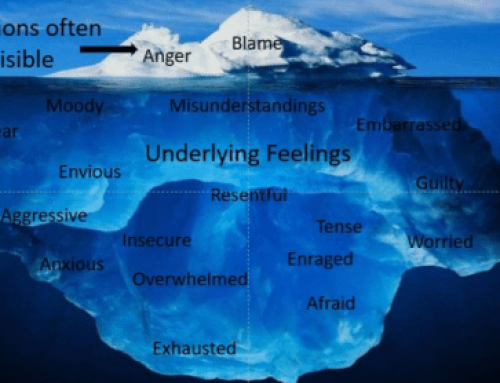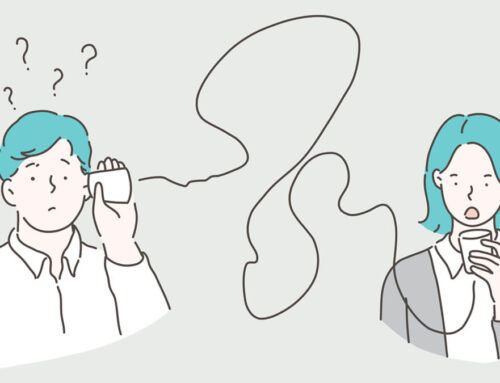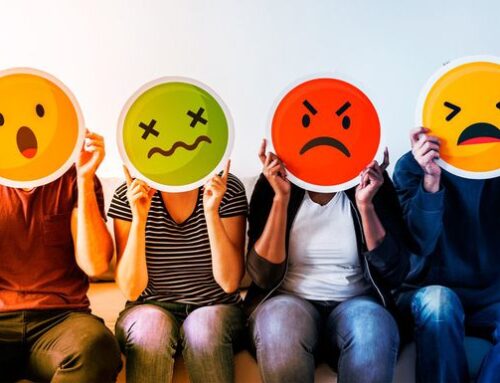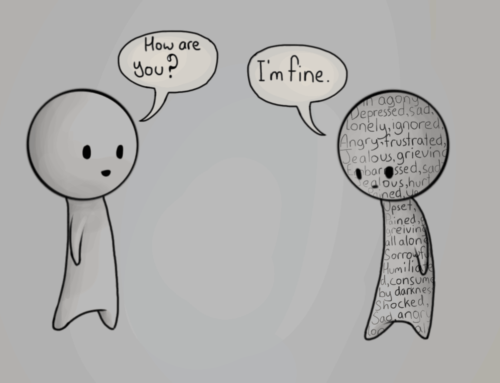What to Do When You Are TRIGGERED!
April 14, 2016
Categories: Communication,Emotion
Unless you live in a bubble, my guess is that you know what it’s like to be triggered by something. You probably know the feeling well. You come in contact with something or someone that offends you. Your pulse quickens, your blood pressure rises, and you tense up. The fight or flight response kicks in and you REACT! Maybe you yell or shout, or respond with a cutting remark. Perhaps you type out an angry retort on social media and press ‘send’ without fully thinking it through.
I had this experience the other day. I was at a conference, and one of the speakers was an expert in something called reparative therapy, which meant he tried to help people who were gay change their sexual orientation. He was presenting a research study on some of his patients.
I got triggered. I have friends who have been deeply hurt by the conservative Christian stance on homosexuality, and I spent several years trying to figure out my own views on the subject. In my own reading and study, I was particularly troubled by research studies examining the effectiveness of changing one’s sexual orientation, because despite their best efforts, people didn’t usually experience much change. I felt as if conservative Christians were selling gay people a story about the possibility of change that wasn’t based on scientific evidence.
I also thought about my own struggles with religion. I’m not gay, but when I was growing up, I felt a high degree of guilt and shame because I couldn’t adhere to all the rules and regulations that I thought my religion required of me. Looking back, I think some of my struggles were just normal developmental issues, and I felt angry that I experienced so much conflict and struggle about religion when I was growing up.
When I was sitting in the audience of the conference presentation, however, all that narrative was swirling under the surface. Looking back on it now, my reaction makes sense, but in the moment all I was aware of was that I was triggered. I felt angry, frustrated, my pulse quickened, and my blood pressure rose. My jaw felt tense, and I clenched my fists. I reacted by asking a snarky question about the small effect sizes in the presenter’s study, and whether he thought it was ethical to suggest that people could change their sexual orientation based on such small changes. The presenter responded defensively, and overall it was a bad interaction.
What could I have done differently? How can we respond more effectively when we are triggered? Here are four steps that have helped me to respond thoughtfully when I am triggered.
- Press pause on your response. When you are triggered, it is difficult to respond effectively. Usually what happens is you respond in anger or frustration, which escalates the situation. The chances of having a fruitful interaction in the midst of a trigger reaction are almost zero. So the first thing I try to do is press pause on my response. Make it a rule that you won’t respond right away when you are triggered. Pressing the pause button is always a good first step.
- Regulate your physiological response. After you have pressed the pause button on your response, the second step is to try to regulate your physiological response. Remember the common physical symptoms of a trigger (e.g., heart rate increases, muscles tense, etc.)? It’s tough to respond effectively (or even think clearly) when your body is so hyped up. It’s a good idea to try and use coping skills to calm down. For example, try to control your breathing. Breathe in for two seconds, hold your breath for one second, and then breathe out for two seconds. Another strategy is to ground yourself. Focus on the feeling of your feet on the ground, and your butt in your chair. Count to ten. Try to get your body to slow down.
- Take a break. If you can’t regulate your physiological response in the heat of the moment, it’s okay to take a break. Say you need to go to the bathroom, and remove yourself from the situation. Take a walk, or get a drink of water. Sometimes it can be easier to calm down when you are away from the triggering event or situation.
- Listen more, talk less. This is a hard piece of advice to follow. But when you are triggered, usually it is a wise strategy to listen more and talk less. When you are triggered, it’s difficult to have a productive conversation. Sometimes it’s better to focus our energy on understanding the other person. The more you listen, the better your chances are of finding a productive way forward. Also, sometimes we feel an urge to respond right in the moment, but in most situations, it’s okay to address the situation at a later time.
Discussion: How do you respond when you are triggered? What do you think of the steps to help slow yourself down and respond productively in the midst of a triggering event?
Related Thoughts
No Comments
Leave A Comment

Subscribe To My Newsletter
Join my mailing list to receive the latest blog posts.
Receive my e-book “The Mental Health Toolkit” for free when you subscribe.






[…] I was struggling. The issue itself wasn’t a huge deal, but my reaction felt really painful. I was getting triggered, and the issue we were dealing with was bringing up some difficult struggles from my past. I felt […]
[…] The key is to pay attention to when you have a strong reaction. Whenever you find yourself being triggered by something, press the pause button. Does the level of your reaction match the situation? Would an “average […]
[…] When someone annoys or triggers us, it can be a pathway to higher levels of personal growth. If someone does something, but it doesn’t tap into one of our own issues, we aren’t likely to get triggered by it. Instead, in situations like these, we are more likely to be curious or experience compassion for the person. It’s not personal. […]
[…] are worried about doing the right thing. We have clear views about what is right and what is wrong. We get triggered and angry when someone else has a different moral position. We lose sleep and get stressed out […]
[…] the facts from my story allows me to own my part of the issue. Sometimes when we get triggered by something, it means the event tapped into something about us. Maybe we were hurt in a similar way growing up. […]